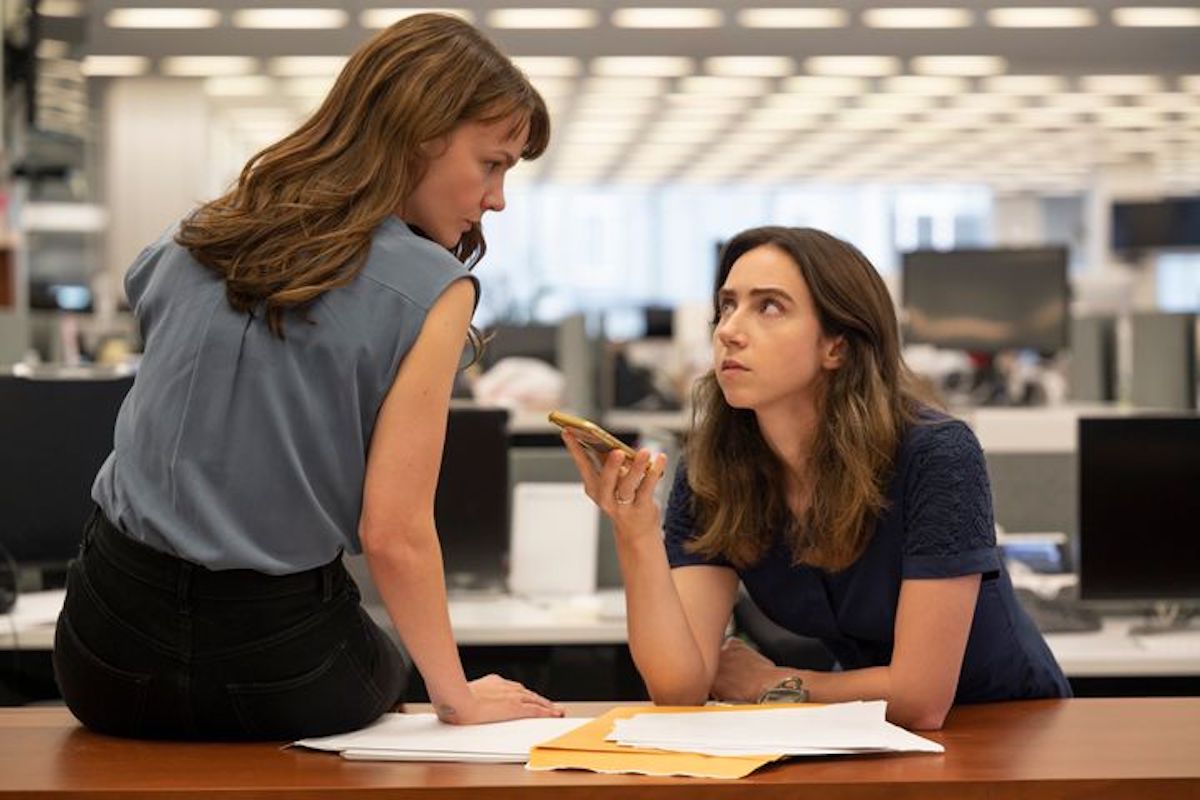From its opening moments (save for one brief flashback), She Said plunges its audience right back into the middle of an era most of us would never dream of trying to revisit. It’s 2016, in the lead-up to the presidential election, and audio of Donald Trump bragging about how his wealth and fame allow him to “grab [women] by the p****” has been heard by millions. Multiple women have come forward about him with allegations of inappropriate sexual advances. Trump is reacting to all of it by personally calling female reporters to scream insults at them. And despite all of this, he goes on to be elected president.
These events are just a few months gone when New York Times journalists Jodi Kantor (Zoe Kazan) and Megan Twohey (Carey Mulligan) begin investigating the pervasive culture of sexual harassment in Hollywood, specifically focused on mega-mogul producer Harvey Weinstein. The end result, as we all know, is a series of explosive exposé articles about Weinstein that led to his conviction on rape charges in 2020. But this movie is focused tightly on the work Kantor and Twohey did before a prison sentence was anything more than a secret fantasy quietly held in the minds of female Miramax employees.
She Said is largely the kind of Wikipedia-style awards-season historical drama we’ve seen time and again depicting this sort of Very Important Historic Event. There are a few stylistically questionable choices—like allowing Ashley Judd to play herself, filmed over a Zoom call, in a jarring cameo that pushes the film into broad, self-importing territory—but overall, the film serves itself by staying focused on the work these two extremely dedicated and talented reporters are doing. Yes, this movie is about Harvey Weinstein and the #MeToo movement and institutional sexual misconduct but really, it is a movie about journalism.
The incredible performances from Kazan and Mulligan (as well as a stellar supporting cast including Andre Braugher, Patricia Clarkson, and Jennifer Ehle) keep the movie grounded as we follow their intensely dogged boots-on-the-ground reporting. The New York these women inhabit feels entirely unglamorous, but also not cosmetically gritty—it’s just there, a gray backdrop for their tireless grind. This movie might not be as cutting or masterful as Spotlight but in terms of tone and the way both stand as a heartbreakingly bleak celebration of capital-J Journalism, a comparison to the 2015 Best Picture winner is certainly not unearned.
(featured image: JoJo Whilden/Universal Pictures)









Published: Nov 18, 2022 05:02 pm